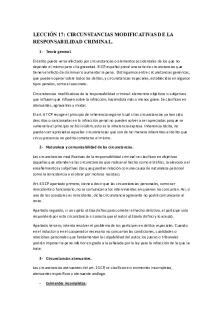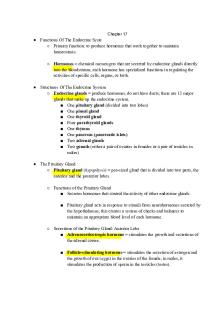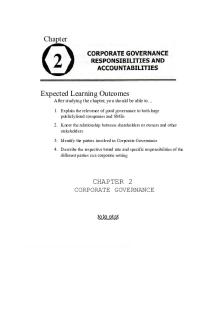Article VI SEC 22 TO 25 - Lecture notes 17 PDF

| Title | Article VI SEC 22 TO 25 - Lecture notes 17 |
|---|---|
| Author | Justine Niña Ricafranca |
| Course | Laws on Obligations and Contracts |
| Institution | Lyceum of the Philippines University |
| Pages | 4 |
| File Size | 67.6 KB |
| File Type | |
| Total Downloads | 208 |
| Total Views | 343 |
Summary
Download Article VI SEC 22 TO 25 - Lecture notes 17 PDF
Description
SECTION 22. The heads of departments may upon their own initiative, with the consent of the President, or upon the request of either House, as the rules of each House shall provide, appear before and be heard by such House on any matter pertaining to their departments. Written questions shall be submitted to the President of the Senate or the Speaker of the House of Representatives at least three days before their scheduled appearance. Interpellations shall not be limited to written questions, but may cover matters related thereto. When the security of the State or the public interest so requires and the President so states in writing, the appearance shall be conducted in executive session. Cabinet secretaries may appear and be heard before either house of congress 1. Upon their own initiative 2. With the consent of the president. 3. Request of either house as they rules may provide. 4. Written questions shall be submitted to the president of the senate or the speaker of the house of representatives at least 3 days before their scheduled appearance. Difference between legislative investigation or inquiry in aid of legislation and power to conduct question hour
Right to conduct inquiry in aid of legislation 1. Under this section, congress has the power to conduct inquiries in aid of legislation the aim of which is to elicit information that may be used for legislation 2. Attendance is compulsory 3. Congress can compel the attendance of executive officials. Power of congress to conduct question hour 1. The objective of which is to obtain information in pursuit of congress oversight functions. 2. Attendance is discretionary, the president’s consent required before his subordinates appear in congress. 3. Congress cannot compel the appearance of the executive officials if the required consent of the president is not obtained first or consent is not given. Executive Privilege- The right of the president and high-level officials of the executive branch to withhold information from congress, the courts, and the public. The validity of executive privilege depends on the ground invoked to justify it and the context in which it is made. The executive privilege being claimed must be clearly asserted. Congress may respect the said refusal if there is a valid claim of privilege through a certification of the president or by the executive secretary upon the authority or order of the president. Types of Information which may be considered privileged 1. Matters of diplomatic character and under negotiations and review- Information on inter-government exchanges prior to the conclusion of treaties and executive agreements may be subject to reasonable safeguards for the sake of national interest. 2. Privilege accorded to presidential communications- This privilege is not absolute. The executive cannot, any more than the other branches of the government, invoke a general confidentiality privilege to shield its officials and employees from investigations by the proper governmental institutions into possible criminal wrongdoing.
3. Deliberative process privilege which is recognized in the United States- Deliberative process covers documents reflecting advisory opinions, recommendation, deliberations comprising part of a process by which governmental decisions and policies are formulated. The objective of the privilege is merely to enhance the quality of agency decisions. 4. Informer’s privilege- The privilege of the government not to disclose the identity of a person or persons who furnish information of violations of law.
Who can avail executive privilege 1. The president 2. Executive secretary- if authorized by the president to invoke on his behalf. 3. Cabinet members- Only upon consent and certification from the president through the executive secretary. Operational Proximity TestGen. Francisco Gudani et al vs Lt. Gen. Generoso Senga- The president as commander-in-chief of the AFP has the right to require military personnel to obtain prior consent before testifying on a legislative inquiry. If the president is not so inclined, the he may be commanded by judicial order to compel the attendance of the military officer. SECTION 23. (1) The Congress, by a vote of two-thirds of both Houses in joint session assembled, voting separately, shall have the sole power to declare the existence of a state of war. (2) In times of war or other national emergency, the Congress may, by law, authorize the President, for a limited period and subject to such restrictions as it may prescribe, to exercise powers necessary and proper to carry out a declared national policy. Unless sooner withdrawn by resolution of the Congress, such powers shall cease upon the next adjournment thereof. Power to declare existence of state of war- Only the congress has the sole power to declare the existence of a state of war, not the power to declare war. We renounce aggressive war but not defensive war. SECTION 24. All appropriation, revenue or tariff bills, bills authorizing increase of the public debt, bills of local application, and private bills shall originate exclusively in the House of Representatives, but the Senate may propose or concur with amendments. Appropriation Bill- It is a bill, the primary and specific purpose of which is to authorize the release of funds from the public treasury. Revenue Bill- It is a bill that levies taxes and raises funds for the government. Tariff Bill- It is a bill that specifies the rates or duties to be imposed on imported articles. Bill increasing public debt- Authorizes increase of the public debt. Private Bill-A bill which benefit only a private individual like a bill granting honorary citizenship to a foreigner for meritorious or distinguished service which benefits our country or our people. Bill of local application- A bill of local application like the creation of a new town, city, or province.
Ex post facto law- A law which punishes an act which at the time of its commission was not punishable. 6 Kinds of ex post facto law: 1. Every law that makes a criminal action done before the passage of the law and which was innocent when done, and punishes such an action. 2. Every law that aggravates a crime or makes it greater thatn when it is committed. 3. Every law that changes punishment, and inflicts greater punishment than the law annexed to the crime when committed. 4. Every law that alters the legal rules of evidence, and receives less or different testimony than the law required at the time of the commission in order to convict the offender. 5. Every law which assuming to regulate civil rights and remedies only, in effect imposes a penalty or the deprivation of a right for something which, when done, was lawful. 6. Every law which deprives persons accused of crime of some lawful protection of a former conviction or acquittal or of a proclamation of amnesty. Bill of attainder- A bill or a law that inflicts punishment without trial. Laws impairing the obligation of contracts- They are laws which renders inoperative or illegal a contract which was valid and existing before their enactment. Procedure in the approval of bills 1. First reading- Only the number and title of the bill is read. Thereafter, the speaker or the senate president, as the case may be, refers it to the proper committee for study. The following may happen after the bill is referred to the proper committee 1. It may be inacted upon or killed in the committee 2. It may be approved by the committee without any amendment. 3. It may be amended and approved later 4. The committee may conduct public hearings and consider favourably the comments and suggestions during the public hearings. 2. Second Reading- When the bill is reported out by the committee it shall be calendared for a second reading. It is at this stage when the bill is read in its entirety. Thereafter, the bill is subject to debate, amendment, and scrutiny by the members of either house. This is the most important stage in the passage of the bill. 3. Third reading- The bill is approved on second reading is printed in its final form. Copies thereof are distributed at least 3 days before the third reading. During the third reading, the members merely register their votes, or they may explain their votes, if this is allowed by the rules. No further debate is allowed. 4. If the bill passed the third reading- It is sent to the other chamber. There will also be three readings in the other chamber. If it is approved by the upper it will be submitted to the president for his consideration and approval. 5. The bill is finally approved by congress- The bill is enrolled when it is finally approved by congress. Thereafter, it will be authenticated with the signature of the senate president or the speaker and the secretary, and approved by the president.
Procedure in approval and disapproval of bills 1. Approved- The president shall sign it. This means that the president is in conformity with the purposes for which the bill was enacted. 2. Disapproved- He shall veto it and return the same with his objections to the house where it originated, which he shall enter the objections at large on its journal and proceed to reconsider it. Veto message- Upon receipt of the veto message of the president, there are two possibilities that may happen 1.
The house where the bill originated may take into account the objections made by the president and make corresponding amendments to accommodate the requests or wishes of the president. When this happens, the bill as amended, will again be presented to the president for approval.
2.
2/3 of all members of each house may invalidate the veto and convert the bill into a law over the objection of the president.
General Rule: The president must either approve or disapprove the bill in its entirety. Exception: In the case of appropriation, revenue, tariff bills. The veto of any particular item or items in these bills shall not affect the item or items to which the president does not object. Period to communicate the veto by the president- The president shall communicate his veto of any bill to the house where it originated within 30 days after the date of the receipt thereof, otherwise, it shall become a law as if he had signed it....
Similar Free PDFs

Lecture notes, lecture 25
- 44 Pages

Chapter 22 - Lecture notes 22
- 4 Pages

Chapter 22 - Lecture notes 22
- 4 Pages

Intro to Jazz - Lecture notes 1-22
- 26 Pages

Lecture notes, lecture Oct 25
- 2 Pages

LecciÓn 17 - Lecture notes 17
- 6 Pages

Chapter 17 - Lecture notes 17
- 15 Pages

Chapter 17 - Lecture notes 17
- 7 Pages

22 - Lecture notes 1
- 14 Pages

Ochem chapter 25 - Lecture notes 25
- 48 Pages

282 lecture notes lecture 22
- 93 Pages

Lecture Notes 1/22
- 2 Pages

Lecture notes 22
- 28 Pages

Preguntas 17-25
- 3 Pages
Popular Institutions
- Tinajero National High School - Annex
- Politeknik Caltex Riau
- Yokohama City University
- SGT University
- University of Al-Qadisiyah
- Divine Word College of Vigan
- Techniek College Rotterdam
- Universidade de Santiago
- Universiti Teknologi MARA Cawangan Johor Kampus Pasir Gudang
- Poltekkes Kemenkes Yogyakarta
- Baguio City National High School
- Colegio san marcos
- preparatoria uno
- Centro de Bachillerato Tecnológico Industrial y de Servicios No. 107
- Dalian Maritime University
- Quang Trung Secondary School
- Colegio Tecnológico en Informática
- Corporación Regional de Educación Superior
- Grupo CEDVA
- Dar Al Uloom University
- Centro de Estudios Preuniversitarios de la Universidad Nacional de Ingeniería
- 上智大学
- Aakash International School, Nuna Majara
- San Felipe Neri Catholic School
- Kang Chiao International School - New Taipei City
- Misamis Occidental National High School
- Institución Educativa Escuela Normal Juan Ladrilleros
- Kolehiyo ng Pantukan
- Batanes State College
- Instituto Continental
- Sekolah Menengah Kejuruan Kesehatan Kaltara (Tarakan)
- Colegio de La Inmaculada Concepcion - Cebu

